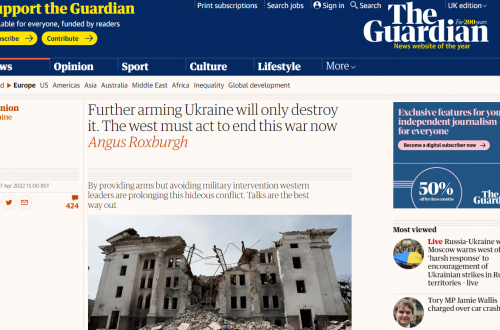This is a guest post by Paul Bogdanor
No matter how many tens of millions are massacred, starved to death or sent to concentration camps in the name of his ideas, the apologists for Karl Marx never go away. Recently The Guardian decided to enlighten us with a disquisition entitled Why Marxism is on the Rise Again.
In it, we learn that sales of Marx’s works are soaring, that Marx’s analysis of economic crisis “has something to teach us as we struggle through economic depression,” that “there is no straight line from The Communist Manifesto to the gulags,” and that capitalists are subhuman (“the snouts of the rich [are] firmly in their troughs”). Are these really the conclusions we should draw from an examination of Marxism?
What Marx proposed for the transition to communism was the centralisation of the means of production, credit, communications and transport in the hands of the state, the “equal liability of all to work,” and the “establishment of industrial armies.” Another feature of the transitional phase is the disappearance of money. “In the case of socialised production the money-capital is eliminated,” wrote Marx. Instead,
Society distributes labour-power and means of production to the different branches of production. The producers may, for all it matters, receive paper vouchers entitling them to withdraw from the social supplies of consumer goods a quantity corresponding to their labour-time. These vouchers are not money. They do not circulate.
In short, Marx’s formula for the transition to communism involved a state monopoly over the economy, the substitution of planning for markets, the regimentation of labour (“industrial armies”), and the abolition of money. In the final communist utopia – where the state would wither away, goods would be superabundant, and everything would be available according to need – all private property would become a thing of the past.
We need not speculate about the likely results of this crazy scheme. Shortly after the Bolshevik revolution, Lenin made a systematic effort to carry it out. The policy was known as War Communism. Among its innovations were the abolition of private property in the means of production, the imposition of universal forced labour (Trotsky’s militarisation of labour), and the attempt to eliminate money.
As Bukharin explained,
Machinery, locomotives, steamships, factory buildings, warehouses, grain elevators, mines, telegraphs and telephones, the land, sheep, horses, and cattle, must all be at the disposal of society…
In such conditions, money will no longer be required.
Here, then, was a society-wide experiment with Marx’s ideas. What was the outcome?
The impact of War Communism was nothing short of catastrophic. Industrial production collapsed. The country was reduced to famine. During the years 1918-20, 8 million people perished from starvation and disease. By 1921, 29 million people were starving. Of these, 5 million died. Another 11 million survived only thanks to outside humanitarian aid from the capitalist Americans.
The Bolsheviks understood very well that this mountain of corpses was not a tragic by-product of civil war but a direct result of implementing Marx’s economic formula. And so they rapidly changed course. In Bukharin’s words, the abandonment of War Communism meant “a collapse of our illusions.”
And yet, unlike Bukharin, Marx’s new admirers refuse to learn any lessons from the suffering and death of so many millions.
Whatever Marx intended, his plan for the abolition of private property, money and trade on a global scale could only be achieved by means of a totalitarian dictatorship, and it would quickly cause the death by famine of much of the world’s population. Famine, slavery and terror are not perversions of Marxism; they are the necessary consequences of putting the doctrine into effect. Those who claim otherwise must explain how to avoid such horrors while building a world without markets and an economy without money.
Does The Guardian have an answer?
